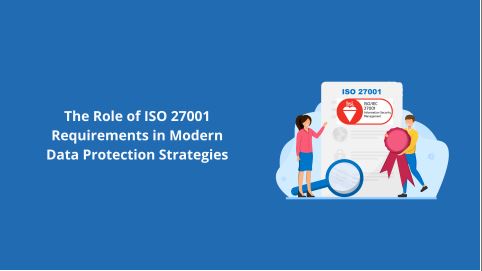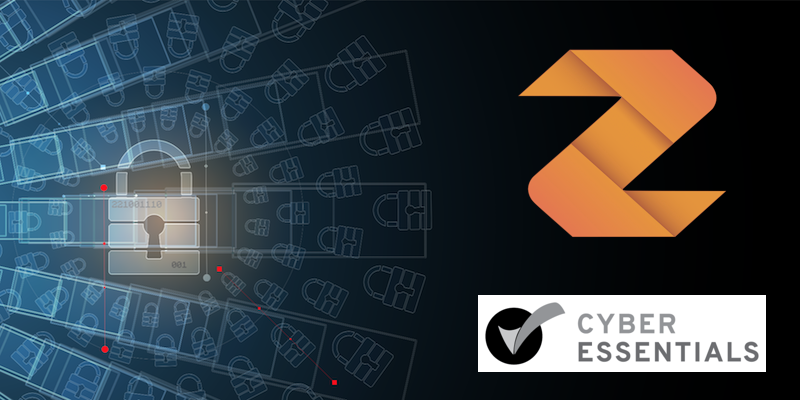The Role of ISO 27001 Requirements in Modern Data Protection Strategies
It has become crucial to protect sensitive information. Modern data protection tactics are greatly influenced by the ISO 27001 standard, a framework for information security management that is widely accepted. Understanding and implementing ISO 27001 Requirements is essential as organisations battle evolving cyber threats and strict data privacy legislation. This blog explores the importance of ISO 27001 Training for data protection, examines essential criteria, and emphasises how professionals may develop their ISO 27001 knowledge through training.
Table of contents
- Understanding ISO 27001 Requirements
- The Role of ISO 27001 in Modern Data Protection Strategies
- Key ISO 27001 Requirements in Modern Data Protection
- Gaining Expertise through ISO 27001 Training
- Conclusion
Understanding ISO 27001 Requirements
An organization’s information security management system (ISMS) must be established, implemented, maintained, and improved based on the guidelines provided by ISO 27001. The standard offers a structured method for determining security threats, putting in place the proper safeguards, and guaranteeing the confidentiality, integrity, and accessibility of sensitive data.
The Role of ISO 27001 in Modern Data Protection Strategies
Let’s learn more about how ISO 27001 is used in contemporary data protection strategies:
- The focus on risk assessment and management in ISO 27001 is consistent with contemporary data protection techniques. Organisations must proactively identify potential security threats and weaknesses to create efficient defence measures.
- The requirements of ISO 27001 enable organisations to match their data protection activities with statutory obligations with the support of data protection regulations like the General Data Protection Regulation (GDPR) and the California Consumer Privacy Act (CCPA).
- Sensitive data must be safeguarded from unauthorised access and alteration, and ISO 27001’s criteria for creating access controls, ensuring data integrity, and safeguarding information directly support these efforts.
- The incident management requirements of ISO 27001 equip organisations to respond to security occurrences in a way that reduces their impact and guarantees prompt resolution.
- The standards for managing third-party relationships in ISO 27001 are consistent with today’s reliance on outside suppliers and service providers. To protect all data, ensuring their adherence to security controls is essential.
- An organization-wide security-conscious culture is promoted by ISO 27001. Promoting staff awareness, appropriate data handling, and a shared dedication to information security depends on this cultural shift.
Key ISO 27001 Requirements in Modern Data Protection
Let’s examine the most important ISO 27001 requirements for contemporary data protection:
- Clearly state the system’s implementation parameters and restrictions in your ISMS’s scope.
- Determine and evaluate information security risks, considering their likelihood and potential impact. Create a risk management strategy to reduce or control these hazards.
- Create a thorough information security policy outlining the organization’s dedication to security and the broad goals of the ISMS.
- Determine and categorise information assets according to their importance and value. Put in place safeguards to prevent unauthorised use, access, or disclosure of these assets.
- Put access controls in place to ensure that only authorised individuals can access sensitive information. User administration, authentication, and authorization are all covered here.
- Use encryption and other cryptographic techniques to safeguard delicate data while it is being stored, transmitted, and processed.
- Create an incident response plan that describes the steps to take in the event of a security occurrence. To make sure the plan is effective, test and review it frequently.
Gaining Expertise through ISO 27001 Training
Professionals who wish to succeed in data protection and information security might benefit from specialised ISO 27001 training. The standards, principles, and implementation strategies for ISO 27001 are covered in detail during training sessions. Participants learn about security precautions, risk assessment techniques, and incident response plans. Furthermore, training equips professionals with the knowledge required to lead companies through the ISO 27001 certification process, demonstrating their commitment to information security.
Conclusion
By adhering to these standards, organisations can improve data privacy compliance, boost information security defences, and foster a security-conscious culture. As cyber threats increase, ISO 27001 provides a solid framework for safeguarding sensitive data and maintaining the trust of clients, partners, and stakeholders. Professionals may take advantage of ISO 27001’s potential through specific training programmes and contribute significantly to creating successful and durable data protection strategies in today’s dynamic digital environment.

